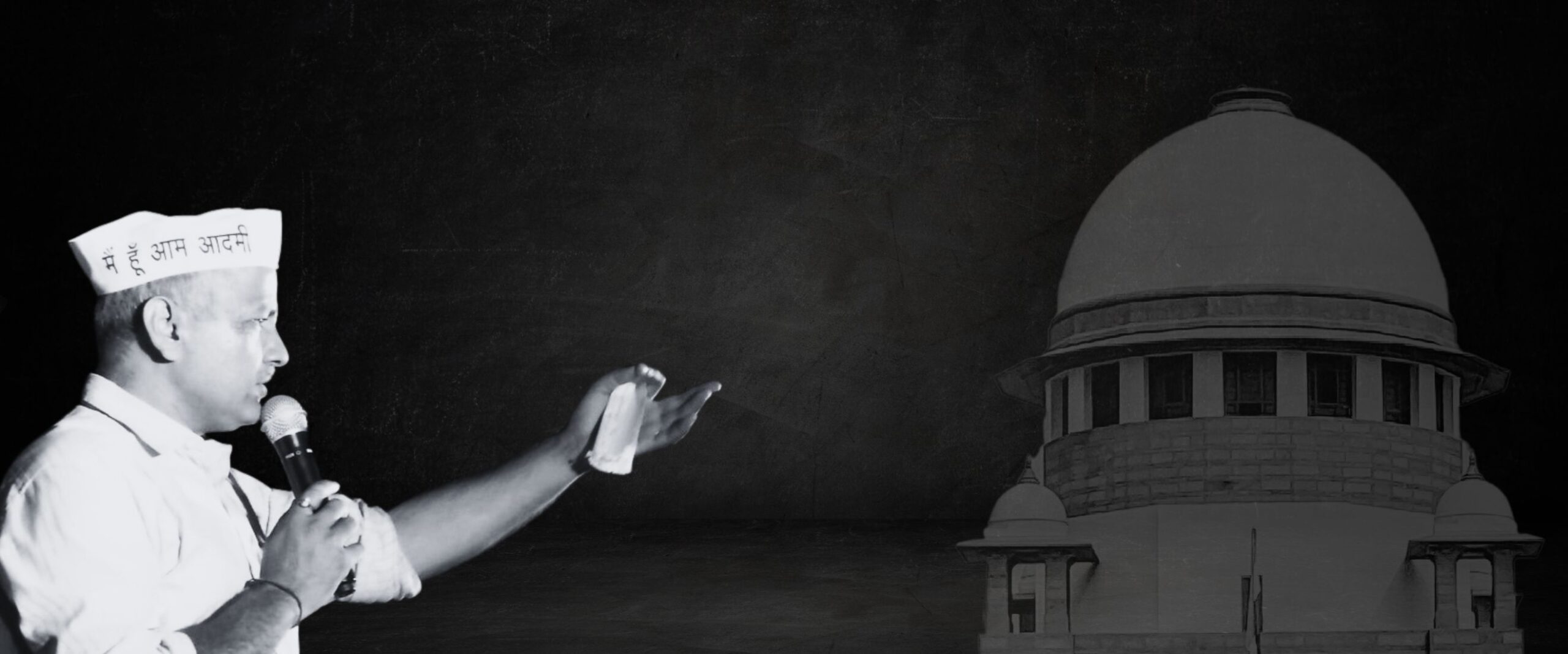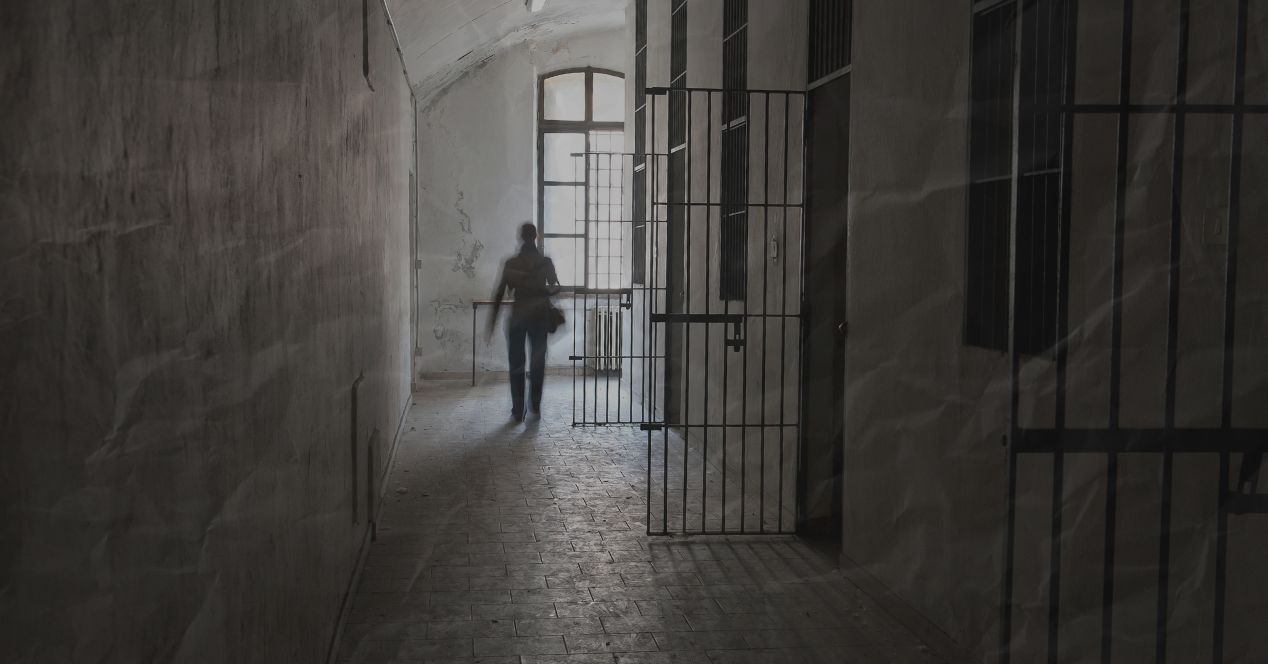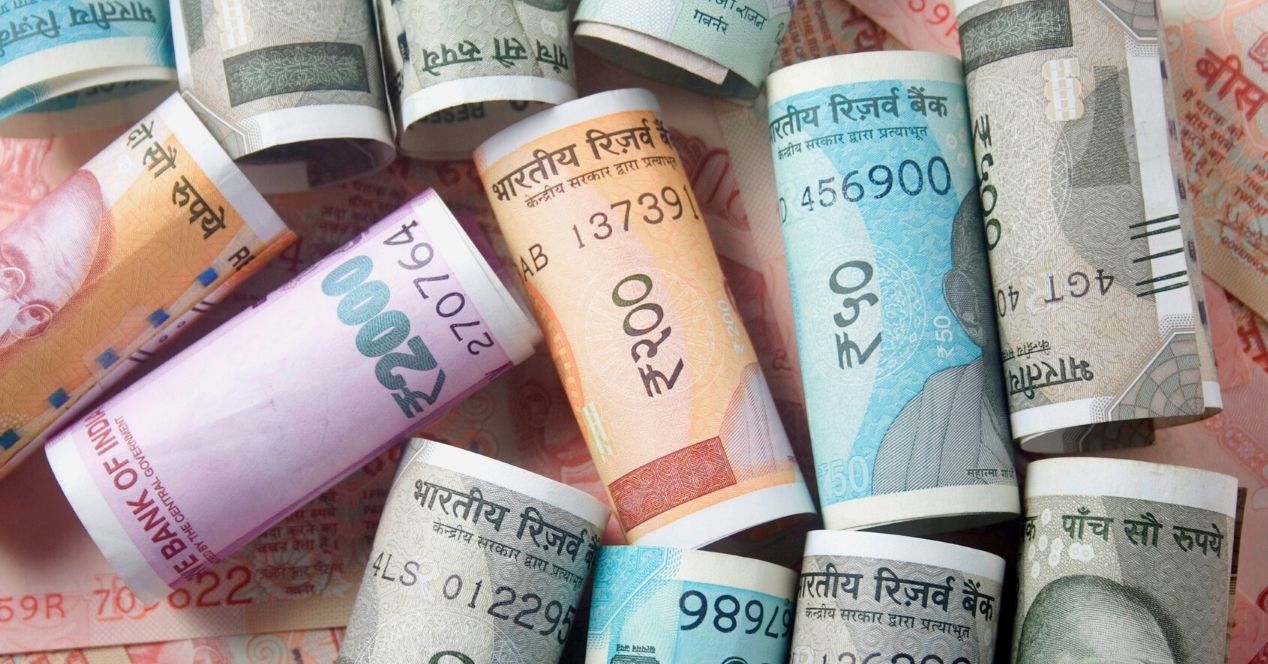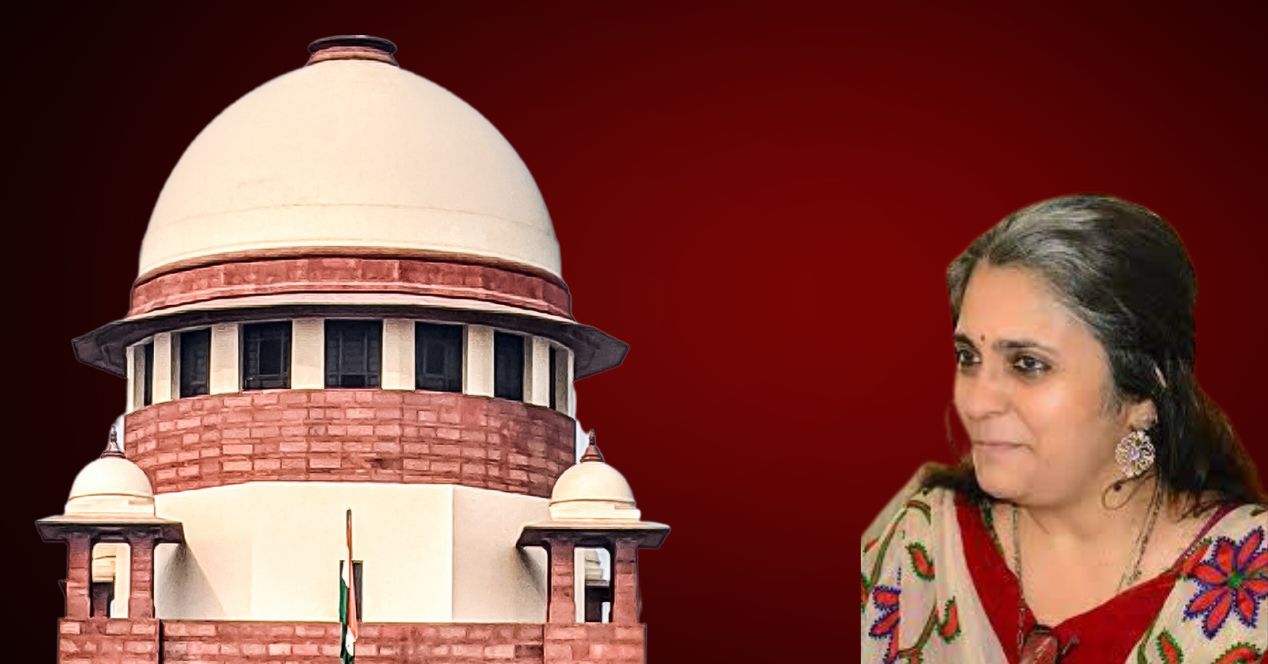Analysis
What does the Sisodia bail decision mean for civil liberties?
The top court’s decision to deny Manish Sisodia bail appears to fall short of its own concerns over personal liberty

How many years can some people exist, before they’re allowed to be free?
— Bob Dylan (Blowin’ in the Wind)
With ten months in custody and no trial, Manish Sisodia may find himself resonating with Bob Dylan’s immortal lyrics. The former Delhi Deputy Chief Minister’s arrest, and the looming possibility of Chief Minister Arvind Kejriwal’s arrest, add to the long list of the Delhi government’s troubles. The Sisodia bail decision raises a bigger question: What does this mean for personal liberty in India?
On 30 October 2023, the SC denied Manish Sisodia bail in a money laundering case. Justice Sanjiv Khanna, while dismissing Sisodia’s appeal for bail, wrote, “Rule of law is a check on arbitrary use of powers. It secures legitimate exercise of power for public good.”
Sisodia’s arrest came under the Prevention of Money Laundering Act, 2002 (PMLA). While harshly criticised for its stringent requirements for grant of bail or proof of innocence, the PMLA’s validity was upheld just last year in July. Hearings have taken place in a review of this decision, but arguments have not been completed. On 23 November 2023, the Union requested extra time.
Why Manish Sisodia and not the Aam Aadmi Party?
On 17 November 2021, the Delhi government implemented a new excise policy for the sale and distribution of liquor. The Central Bureau of Investigation (CBI) and the Enforcement Directorate (ED) allege that this policy was “formulated with deliberate loopholes” to secure kickbacks and benefits for AAP leaders. They further claim that Sisodia was the “architect” of the alleged scam designed to garner kickbacks of nearly ₹100 crores for the Aam Aadmi Party (AAP), which the party utilised for its election campaign in Goa.
Both the CBI and ED assert that the Aam Aadmi Party, a juristic person, was the beneficiary of the alleged crime. Advocate on Record Vikram Hegde, who has previously written on bail in the Bhima Koregaon case, pointed out that juristic persons are not exempt from the PMLA’s ambit: “Assets may be held in the name of non-natural persons,” he said, “If a minister has taken a bribe and that bribe has been routed into a company, then even the company becomes an accused person under the PMLA.”
However, the CBI and the ED have shied away from prosecuting the party, at least for the time being. The ED, as per its statements before the Court, has said that it will decide on this aspect only after ascertaining the amount used in the Goa election.
Sisodia is not the sole AAP leader under the ED’s lens. Other party leaders, many holding elected positions, have attracted the ED’s attention in the last few years in a number of cases. These include Satyendar Jain (currently on interim bail), Tahir Hussein, Amanatullah Khan, and six Punjab MLAs.
Can cabinet decisions be subject to criminal trial?
A month before its decision, the Bench had rapped the ED’s knuckles for not providing sufficient proof for Sisodia’s arrest. “You have to show that the person is actively connected with the proceeds of the crime,” Justice Khanna reminded the prosecution. Curiously, Additional Solicitor General S.V. Raju, appearing for the CBI and ED, replied that Sisodia “should not have allowed the policy.” The policy itself, he stated, was not under challenge.
Notably, the policy (now discontinued) appears to have been implemented after going through all the usual channels. Sisodia’s defence pointed out that public opinion (with 14,671 comments received) and the Lieutenant Governor’s recommendations were considered and incorporated. ASG Raju’s argument then raises the question: Must all the Delhi Cabinet ministers involved in formulating the policy be implicated in this case?
Writing in The Wire, Senior Advocate Sanjay Hegde suggests that this may be a case of “investigatorial vengeance”. Earlier this year, 14 Opposition parties approached the Supreme Court alleging misuse of agencies like the ED by the Union government. The Court asked them to return with a concrete case highlighting specific instances of misuse. Sanjay Hegde argues that Sisodia’s case appears to be one such instance.
Hours after the Supreme Court denied Sisodia bail, the ED summoned Kejriwal for questioning in the same case. Kejriwal declined to submit for questioning, choosing instead to send a letter questioning the motives behind the summons. Meanwhile, his party colleague and Rajya Sabha member Sanjay Singh has been in custody in the same case since 4 October 2023.
The Mohan Lal test for possession
The objective of the PMLA is to prevent money laundering. Put simply, money laundering is the activity of legitimising illegally earned money. Accordingly, the PMLA focuses on assets acquired through illegal activity, and considers them to be “proceeds of crime.”
The test laid down by the court in Mohan Lal v State of Rajasthan (2015) concerns the possession of the proceeds of the crime. Possession or control of the bribes or kickbacks by Sisodia would be damning evidence. The Court, however, admits to a “lack of clarity” on whether Sisodia, directly or indirectly, possessed or controlled any of the illegitimate funds allegedly transferred to AAP’s Goa campaign.
The Court rejected all but one of the charges raised against Sisodia in the bail decision. This charge is under Section 7 of the Prevention of Corruption Act, 1988, pertaining to bribery. The crime here is the “unjust enrichment of the wholesale distributors at the expense of government exchequer or the consumer.” The November 2021 policy, the Court observed, increased the 5 percent commission earned by wholesale liquor distributors to 12 percent earning them an additional ₹338 crores—what the prosecution is arguing are “proceeds of the crime.” The ED has accused Sisodia of conspiring to obtain this amount in the form of bribes. Strangely, the Court did not apply the Mohan Lal test to link this amount to Sisodia.
On 30 November, it was reported that Sisodia had a review petition challenging the denial of bail on the ground that “were errors apparent on the face of the record.”
What are the implications for bail in PMLA cases?
In a conversation with Supreme Court Observer, Sanjay Hegde pointed to a key concern about personal liberty. “Charges must be sustained in court before you deprive a person of liberty,” he said, “Right now, you deprive people of liberty first and try to get the case to stick in court… if investigative agencies are given an unfettered right to arrest and there are no consequences, then discretion will be selectively applied.”
The difficulty in obtaining bail under the PMLA can be particularly hard on those without sufficient resources. “If the ED decides someone has to go in (jail) and stay in, it’s a rare court that will come to the aid of the accused,” Sanjay Hegde said, “Every case will have to be fought till the Supreme Court.”
Meanwhile, Vikram Hegde spoke of a lost opportunity to bring uniformity in bail jurisprudence with other stringent laws like the Narcotic Drugs and Psychotropic Substances Act, 1985 (NDPS). In a recent decision, Mohd Muslim v NCT of Delhi (2023), the Supreme Court ruled that if courts are reasonably satisfied that the accused may not be guilty, then bail must be granted. “That could have been done here, but that’s not the standard that has been adopted,” Vikram Hegde explained.
How much delay is enough delay?
In the Sisodia case, the Court seems to have been aware of these concerns. “Detention or jail before being pronounced guilty of an offence should not become punishment without trial,” wrote Justice Khanna. In the 41-page long judgement, he pointed to the bail granted to former Finance Minister P. Chidambaram in a similar case following 49 days in custody.
“If you look at cases that are not very high profile, it is very ordinary for each adjournment to take two-three months,” Vikram Hegde said, referring to the typical institutional delay in the legal system. “And contrast this with the case of Arnab Goswami where the Court said even one day of incarceration is too much.” He went on to suggest that in cases involving personal liberty, the urgency of the situation should take precedence over following the usual timeline to move things along. “Should there be some judicial emergency over and above institutional delay?” he asked.
Unlike in the Chidambaram case, the Court’s concern in Sisodia’s matter appears rather lax. Sisodia, already ten months in custody, may apply for bail only if the trial against him proceeds “at a snail’s pace in the next three months.” The CBI, meanwhile, has assured the top court that the trial will conclude within the next six to eight months.
Joyston D’Souza is a Bengaluru-based lawyer and former legal journalist for Supreme Court Observer. He is interested in public policy and solving the pendency problem faced by courts.




